MercoPress. South Atlantic News Agency
Tag: Brazil’s GDP
-
Monday, December 30th 2024 - 23:13 UTC
Brazil's financial markets adjust 2025 projections for the worse
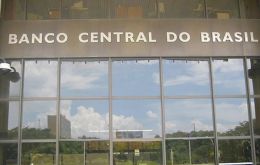
Monday's issue of Brazil's Central Bank's (BCB) Focus Bulletin twitched last week's 2025 slightly for the worse, with higher inflation and a smaller Gross Domestic Product (GDP), Agencia Brasil reported. The study showed that the Broad Consumer Price Index (IPCA) should end 2025 at 4.96% from the 4.86% forecast last week. It was the 11th adjustment to the inflation projection and the ninth to the exchange rate between the local real and the US dollar.
-
Wednesday, December 4th 2024 - 21:30 UTC
Brazil: IBGE says growth in 3Q reached 0.9%
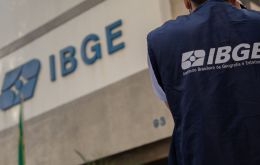
Brazil's economy grew 0.9% in the third quarter of 2024, according to data released this week, Agencia Brazil reported Wednesday citing figures from Brazil's Institute of Geography and Statistics (IBGE), which represented a 4% yoy increase in the country's Gross Domestic Product (GDP)—the total of all goods and services produced nationwide.
-
Wednesday, December 20th 2023 - 10:45 UTC
IMF says Brazil is the 9th economy in the world

According to a report from the International Monetary Fund (IMF) released Tuesday, Brazil is now the ninth-largest economy in the world, thus displacing Canada from that position.
-
Friday, September 2nd 2022 - 18:39 UTC
Guedes: Brazil's GDP to beat most optimistic projections
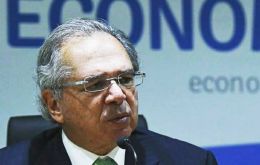
Brazilian Economy Minister Paulo Guedes said Monday that his country's Gross Domestic Product (GDP) would outpace the most optimistic projections by the end of 2022.
-
Wednesday, October 28th 2020 - 09:19 UTC
Bolsonaro “transformative” reforms' goal for Brazil, with a 3,5% average growth during a decade

Brazil's government on Tuesday outlined a long-term roadmap for the economy, based on three scenarios of economic and fiscal reforms that could lift gross domestic product per capita by as much as 37% over the next decade.
-
Thursday, January 19th 2017 - 08:00 UTC
Brazil confident in “recovery curve” coming from a very low level, says Meirelles

Brazil's Finance Minister Henrique Meirelles has admitted that the government is going to revise its official forecast for this year's GDP growth, but gave no details as to the extent of the change. In its latest forecast, the government had estimated the economy was going to grow 1% in 2017.
-
Thursday, November 3rd 2016 - 09:53 UTC
Temer austerity program inspired in Thatcher´s program to contain expenditure
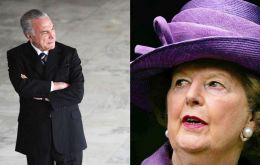
Brazilian president Michel Temer said that the economic adjustment implemented by Brazil is inspired in the program of former prime minister Margaret Thatcher, who led the UK from 1979 to 1990. “As Thatcher use to say and we are following in Brazil, containing government expenditure is necessary because we are only going to spend collected revenue”.
-
Friday, October 7th 2016 - 12:18 UTC
Temer wins first Congressional battle with milestone bill to cap public spending
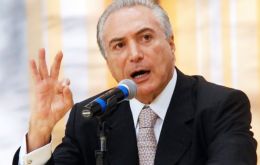
A Congressional committee in Brazil approved on Thursday a constitutional amendment that would limit public spending to the rate of inflation for 20 years, handing President Michel Temer an initial victory in his plan to plug a widening deficit, which if continued at the current rate could lead to fiscal collapse and public accounts insolvency, “a repeat of the Greek tragedy”.
-
Saturday, May 14th 2016 - 09:09 UTC
Temer's team confident it has the political support to implement tough measures

Brazil's interim government said on Friday it has the political support for tough measures needed to return the economy to growth and can secure a permanent mandate once populist President Dilma Rousseff's impeachment trial is over. Presidential Chief of Staff Eliseu Padilha said the incoming government understood it was only provisional for now and had ordered portraits of Rousseff to be left hanging in federal buildings.
-
Wednesday, January 27th 2016 - 08:28 UTC
Brazil's current account deficit drops to 3.32% of GDP, lowest since 2010
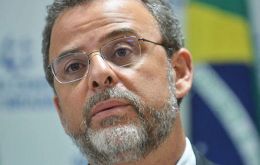
The soaring US dollar and Brazil’s slumping economy led to a weaker demand for imported goods and services in 2015. As a result, Brazil’s current account deficit reached USD 58.942 billion, equivalent to 3.32% of GDP. The result is the smallest amount since 2010. In 2014, the current account deficit reached USD 104.181 billion, or 4.31% of GDP.
